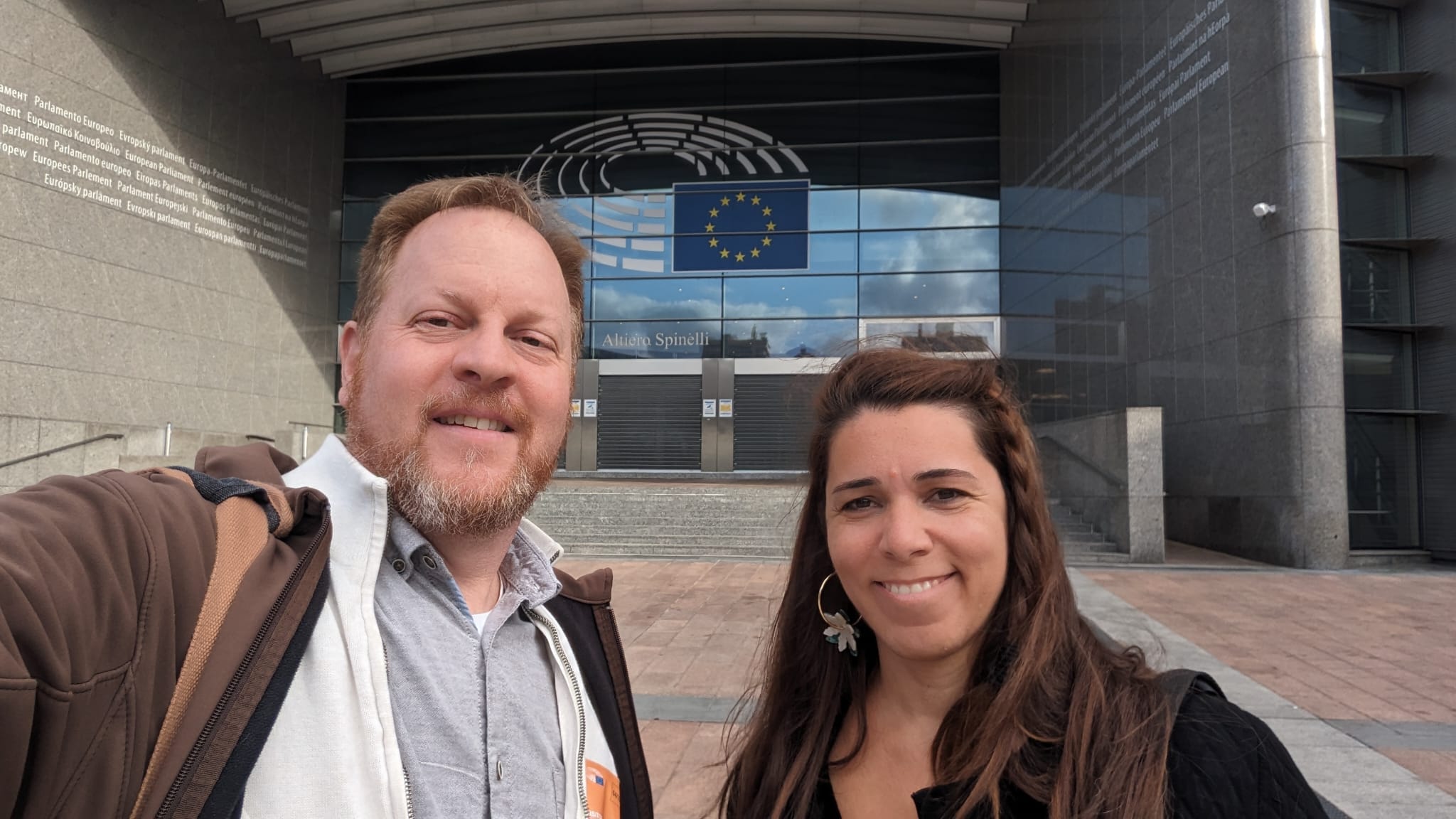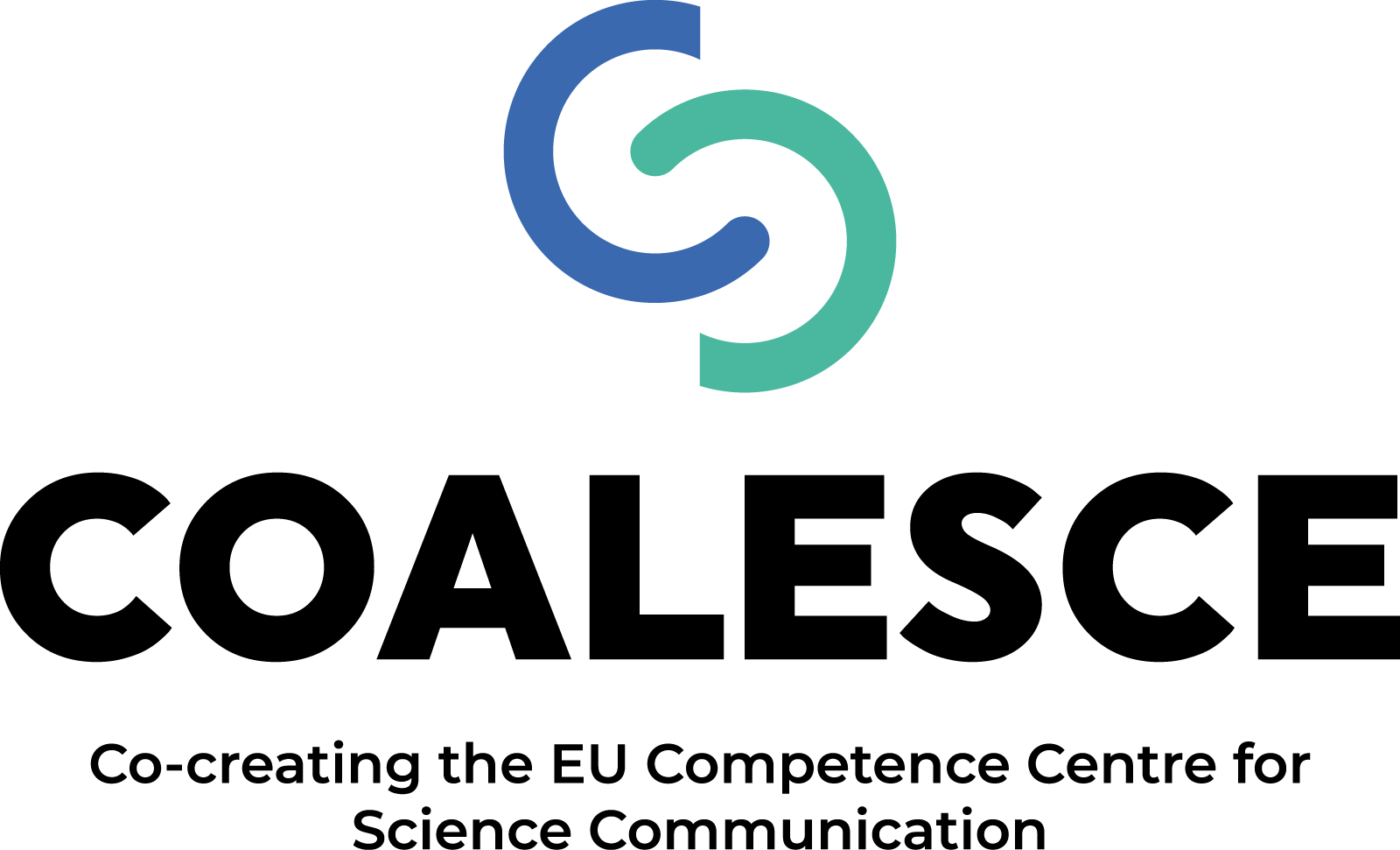Making the case for mandatory scicomm

In October 2023, Jason Pridmore, Joana Magalhães and Rosa Arias visited Brussels to speak with funders and raise awareness of COALESCE’s goals.
Researchers and research funders across Europe recognise the value of science communication. But while there have been changes to how researchers report on their research’s impact and outcomes, there hasn’t been a huge shift in reporting their communication activities. Funders vary in their requirements for researchers to engage diverse publics with their work. The COALESCE coordination team – Jason Pridmore (Erasmus University Rotterdam), Joana Magalhães and Rosa Arias (both Science for Change) – visited Brussels in October 2023 to speak with funders from across Europe on the matter and raise awareness of COALESCE’s goals.
The team met with representatives from Science Europe (which represents a number of organisations including national funding bodies), the European Research Council, the European Science-Media Hub and the Joint Research Council as well as staff members of European Parliamentarians. They discussed the importance of science communication and explored the possibility of improving requirements for science communication with a view towards making it mandatory in the coming years.
“Part of the goal,” reflects Jason Pridmore, “is that science communication becomes a normal part of the funding process, making it a core part of publicly funded research. It’s not that everyone should be doing science communication individually but the mentality around team science does require that certain members of the team are.”
The rich diversity of science-communication activities, projects and networks across Europe also presents a challenge: it can get a bit overwhelming, feeling disorganised and not unified. “There is no ‘one place’ that directs you,” notes Pridmore. “It would be helpful if there was a space with some recognised quality and recognised opportunities for science-communication training.”
The delegation was well-received, with wide agreement on the importance of – and support for – establishing the European Competence Centre for Science Communication.


